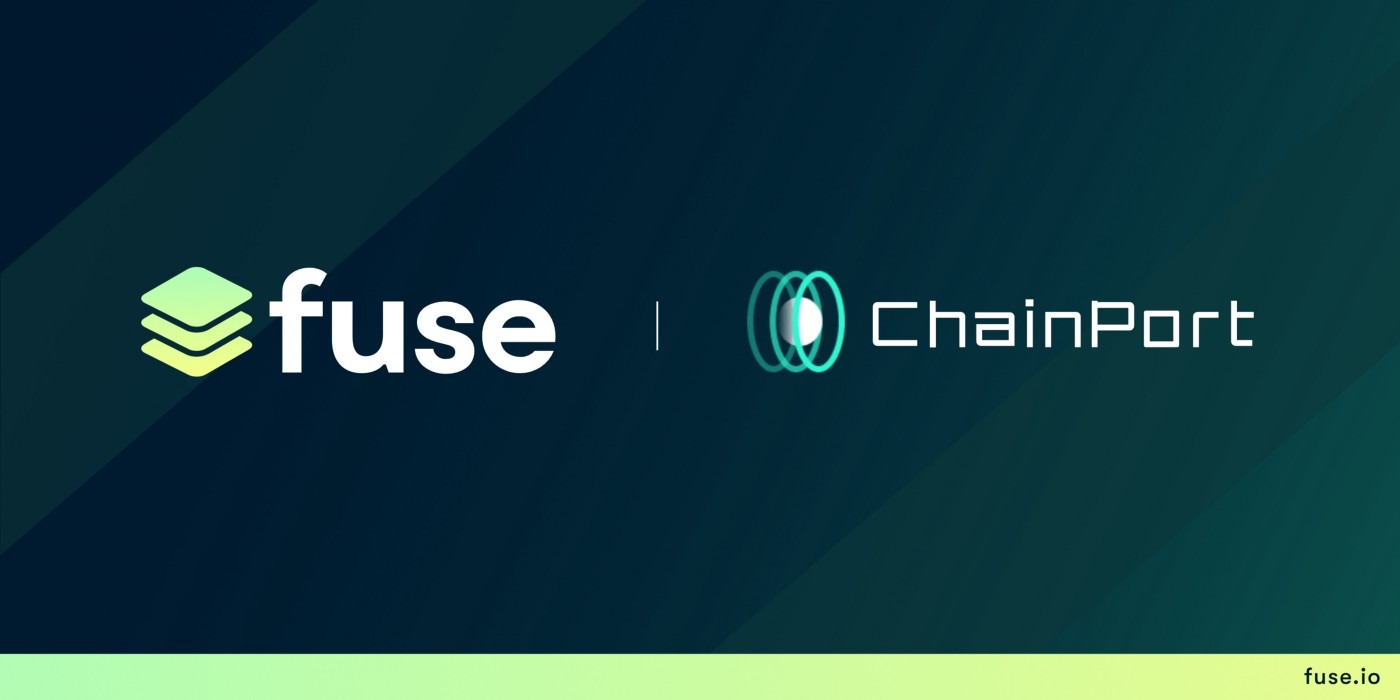The Fuse Network blockchain is now integrated by ChainPort’s multichain bridge. A Fuse user or project team can port a Fuse-native token to other ChainPort-supported chains using the ChainPort web application.
The recent developments in the blockchain space have made it increasingly clear that the future of the industry lies in interoperability among multiple chains, especially EVM-compatible ones like Fuse Network.
The Fuse team has been hard at work securing integrations with interoperability platforms. Today, we are announcing the latest addition to the list of operators supporting Fuse — the ChainPort multichain bridge.
A Multichain bridge for ERC20 compatible tokens
ChainPort is a platform operating a multichain bridge for moving ERC20-compatible tokens between the supported blockchains. Its constituent two-way bridges work in a manner similar to the Fuse-Ethereum bridge for ERC20 tokens on FuseFi. They are custodial, secured by external validators and permissionless for porting.
The latter means that even if a token has not yet been ported from the starter chain to the target chain, a user can just initiate the process straight from the ChainPort interface. The same holds for bridging a wrapper of an original token to another non-original chain (e.g. FUSE from Binance Smart Chain to Polygon).
Currently, cross-chain token transfers via ChainPort incur no fees beyond the transaction costs of sending and claiming tokens on the blockchains involved. However, this will change soon with the introduction of the platform’s PORT utility token.
Smart contract security is a key focus of ChainPort. Its smart contracts have been audited by CertiK and CyberUnit Technologies, and are monitored non-stop with the help of the CertiK Skynet tool.
While porting tokens between chains is permissionless, project teams on the supported blockchains may officially list their tokens with ChainPort. The benefits of listing include the token contracts allowing tokens to be further listed on major decentralized exchanges (DEXes) such as PancakeSwap and Quickswap
ChainPort is developed and managed by Dcentralab (previously, 2key Labs). Other blockchain projects by the blockchain solutions company include 2key Network, Hord, and Tokensfarm.
How Fuse integrates ChainPort
The Fuse Network blockchain has been added to the list of chains supported by ChainPort that also includes Ethereum, Binance Smart Chain (BSC), Avalanche and Polygon. Fuse users can now port and bridge tokens to those chains using ChainPort’s convenient web interface. The instructions on how to use ChainPort are available in its guide.
Currently, the ChainPort protocol only supports tokens that originate on the Ethereum mainnet. However, ChainPort is planning to extend the protocol to the native tokens of other integrated chains soon.
At present, the only fee that needs to be paid for token transfers is the network fee on the starting blockchain. This will soon change with the upcoming launch of ChainPort’s native PORT token. Users will then have the choice between paying 0.3% of the transfer value in the bridged token or 0.2% in PORT.
ChainPort is also working on introducing additional functionalities, including private bridges for businesses and NFT support.
The Fuse team is thrilled by the collaboration with a leading blockchain interoperability platform and we are hopeful that it will significantly boost Fuse’s connectedness, particularly to Polygon and Avalanche to which Fuse had not been connected via a traditional token bridge before.
Follow our social media channels to stay updated on recent news and developments at
We also encourage you to subscribe to our newsletter here.
.svg)
.svg)











